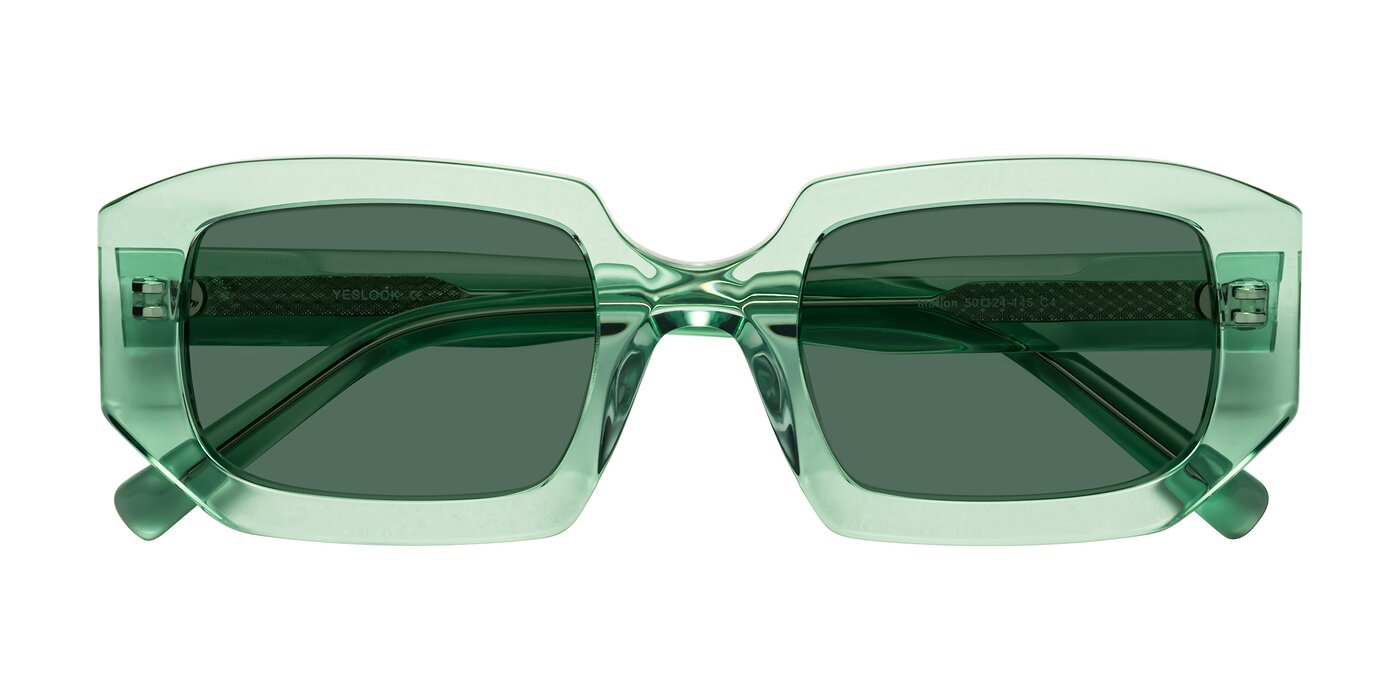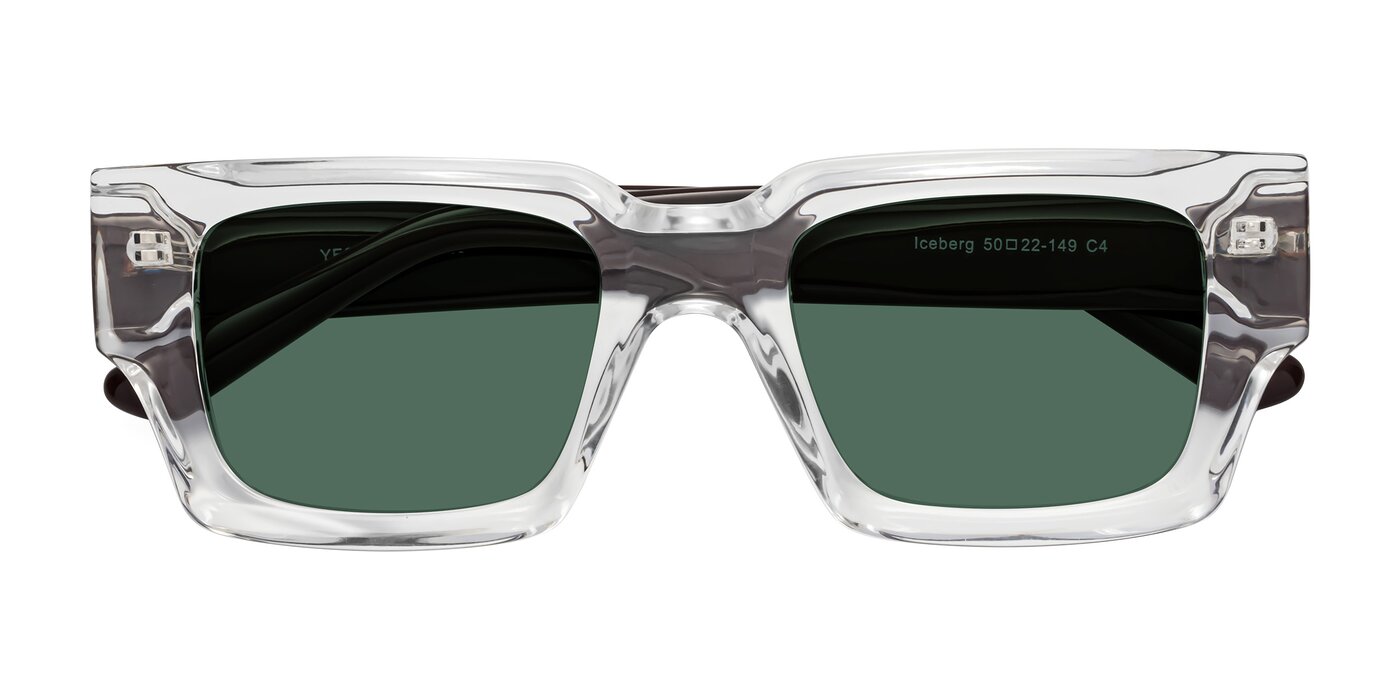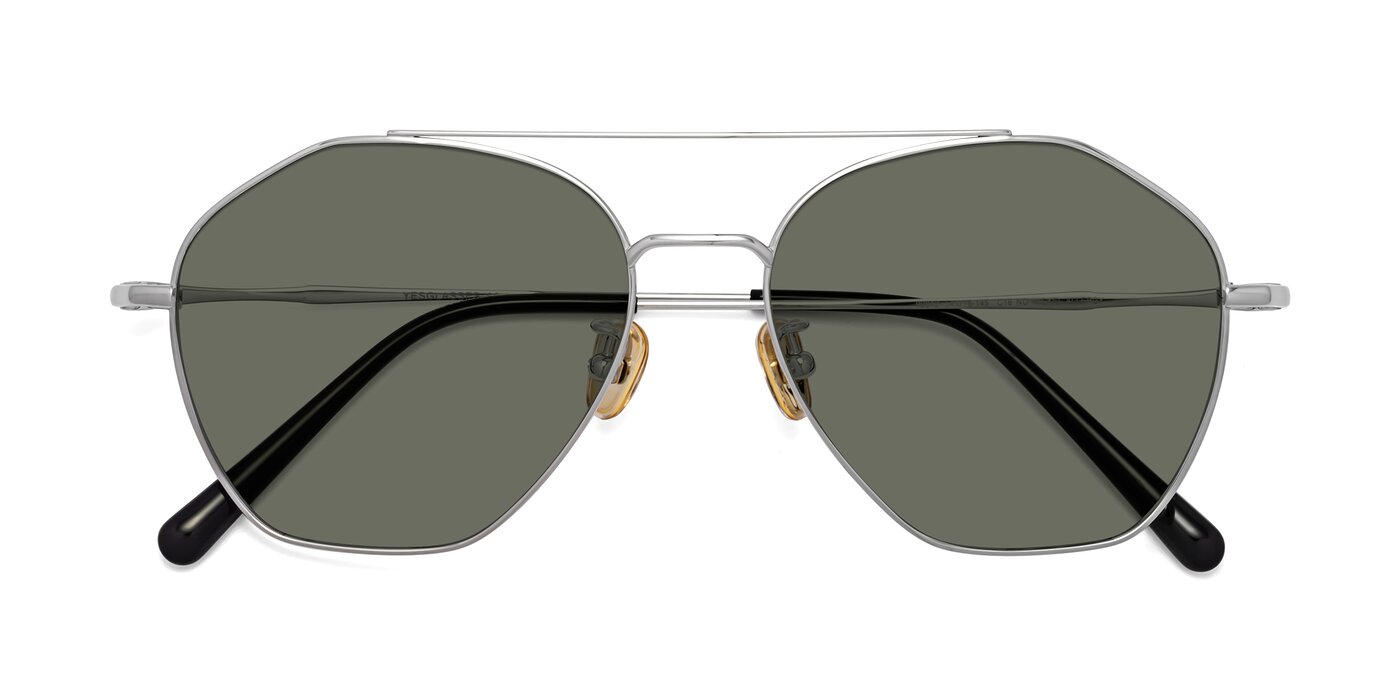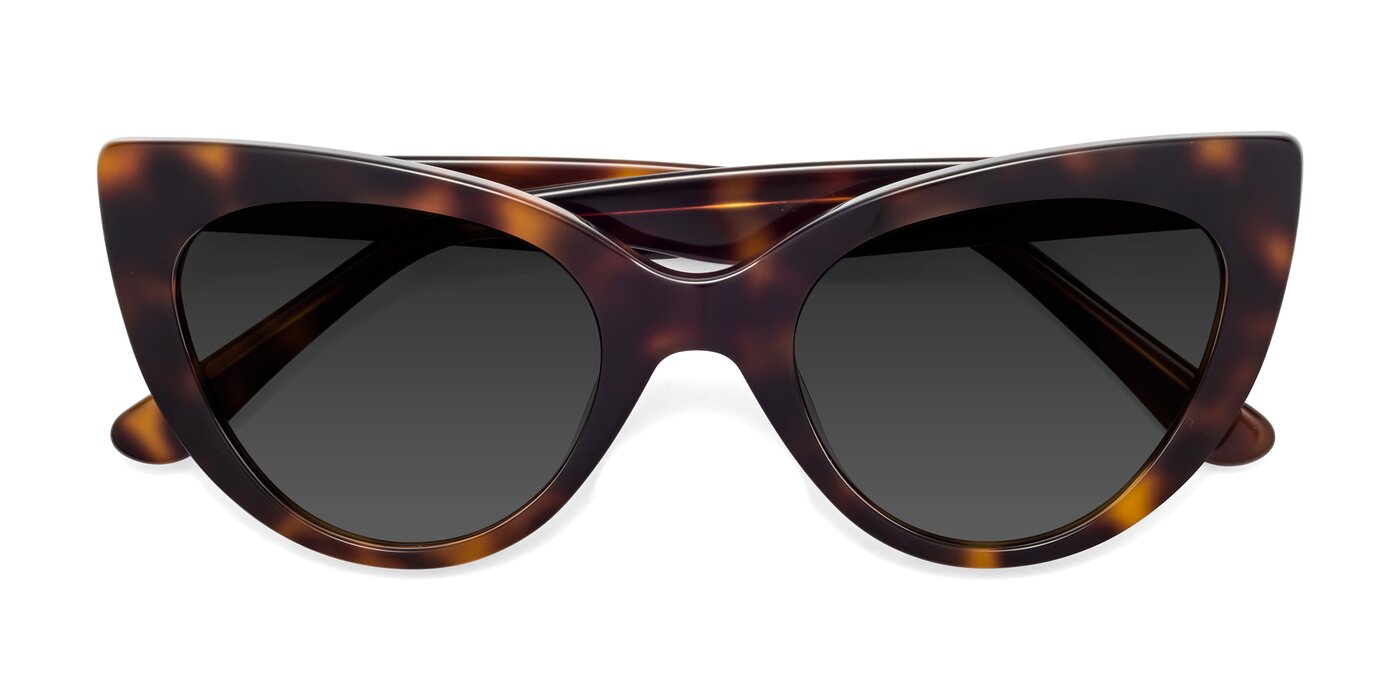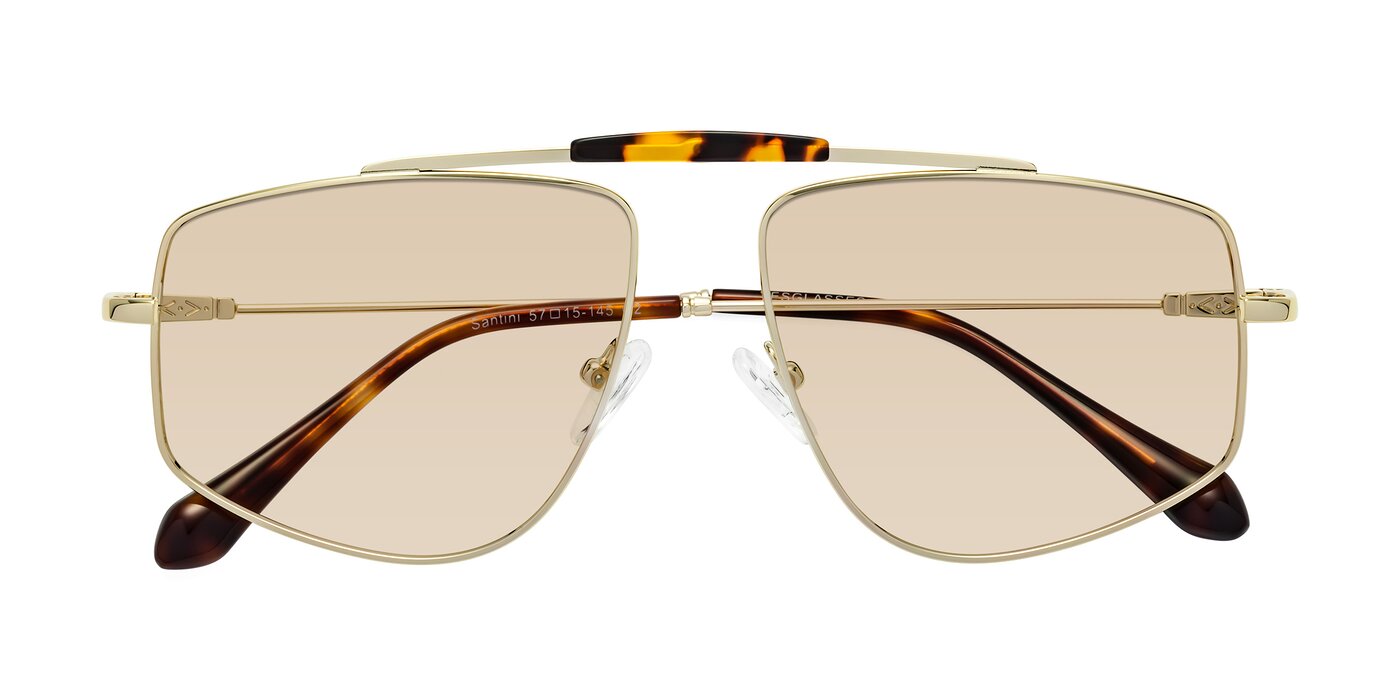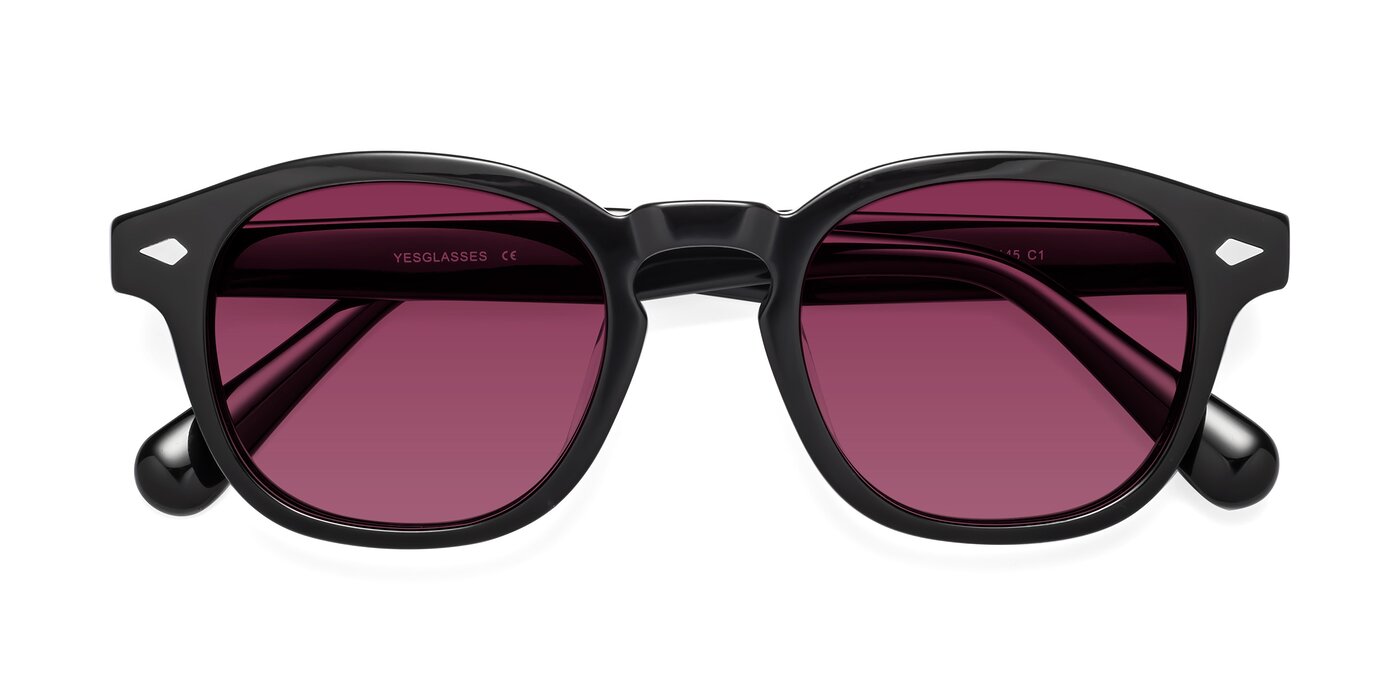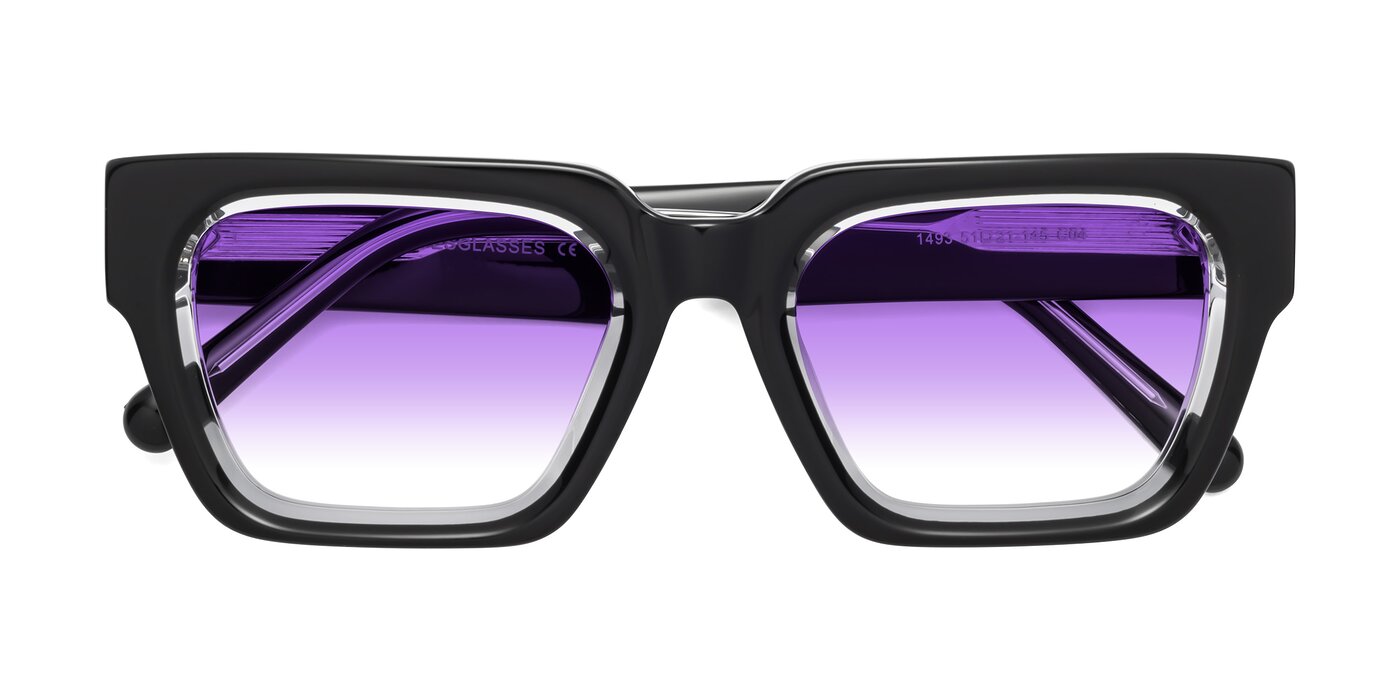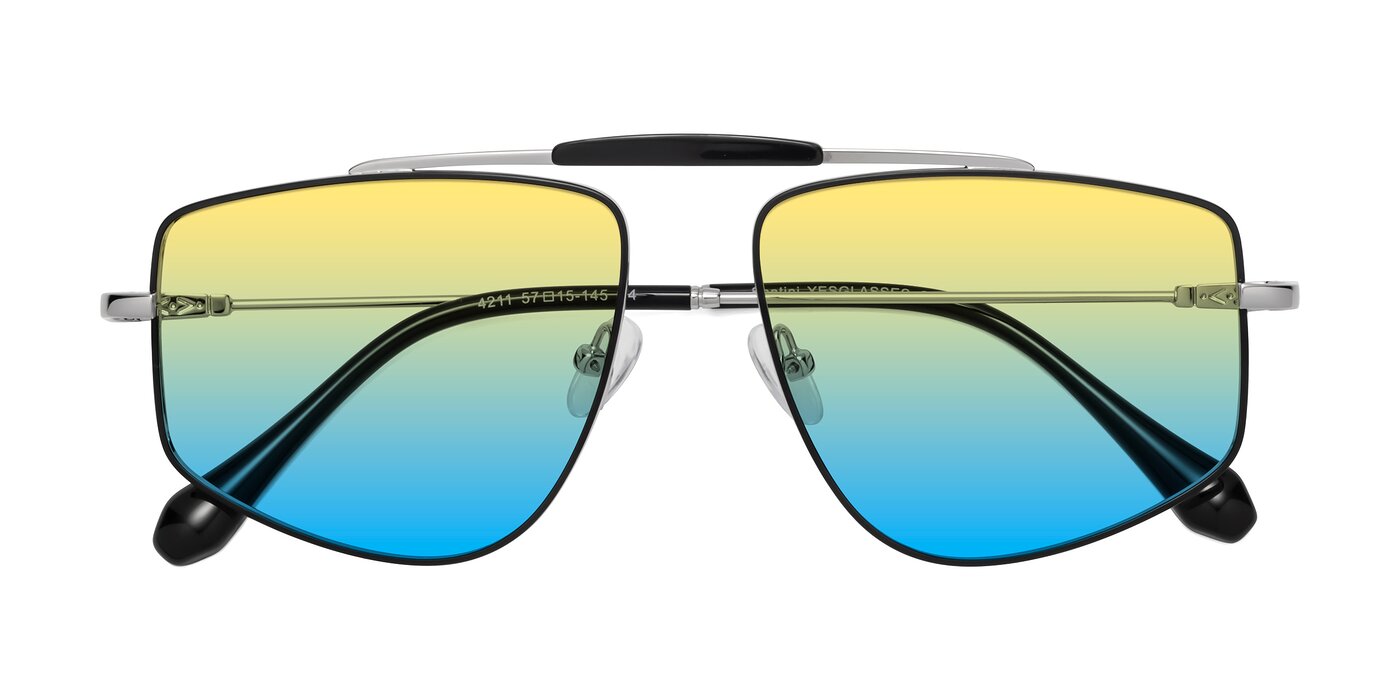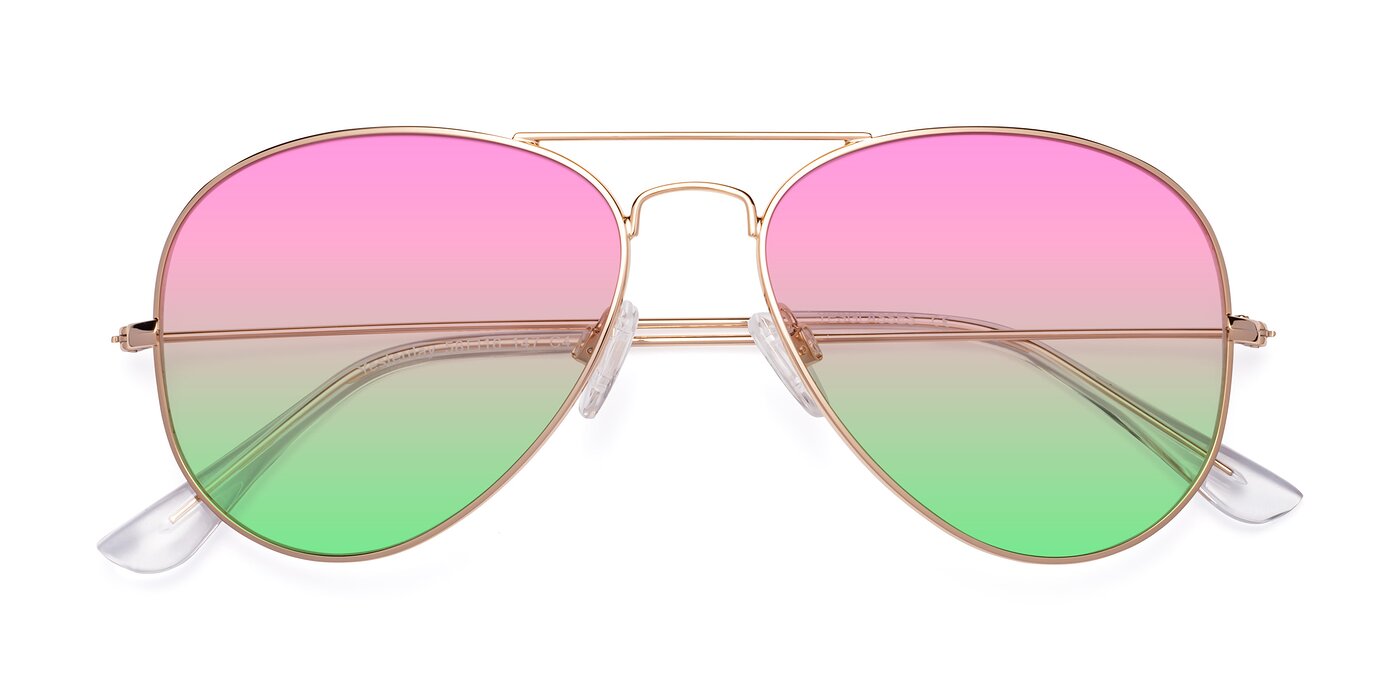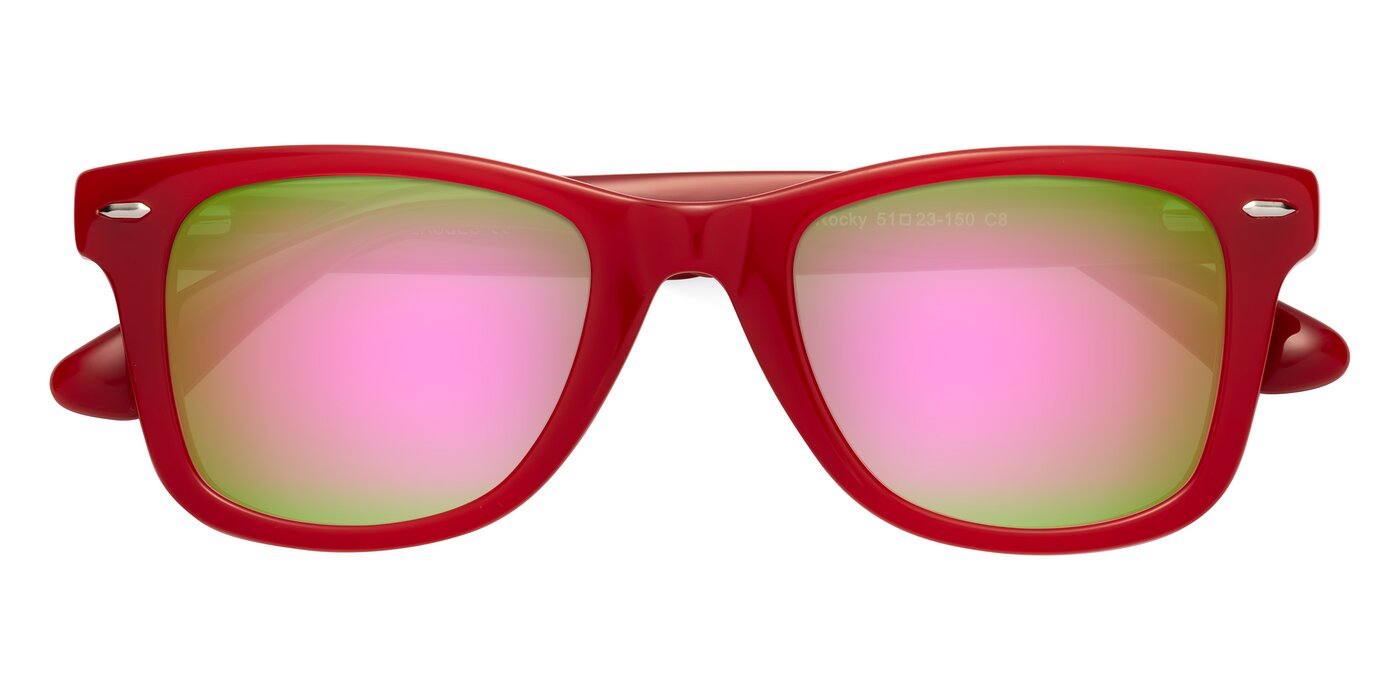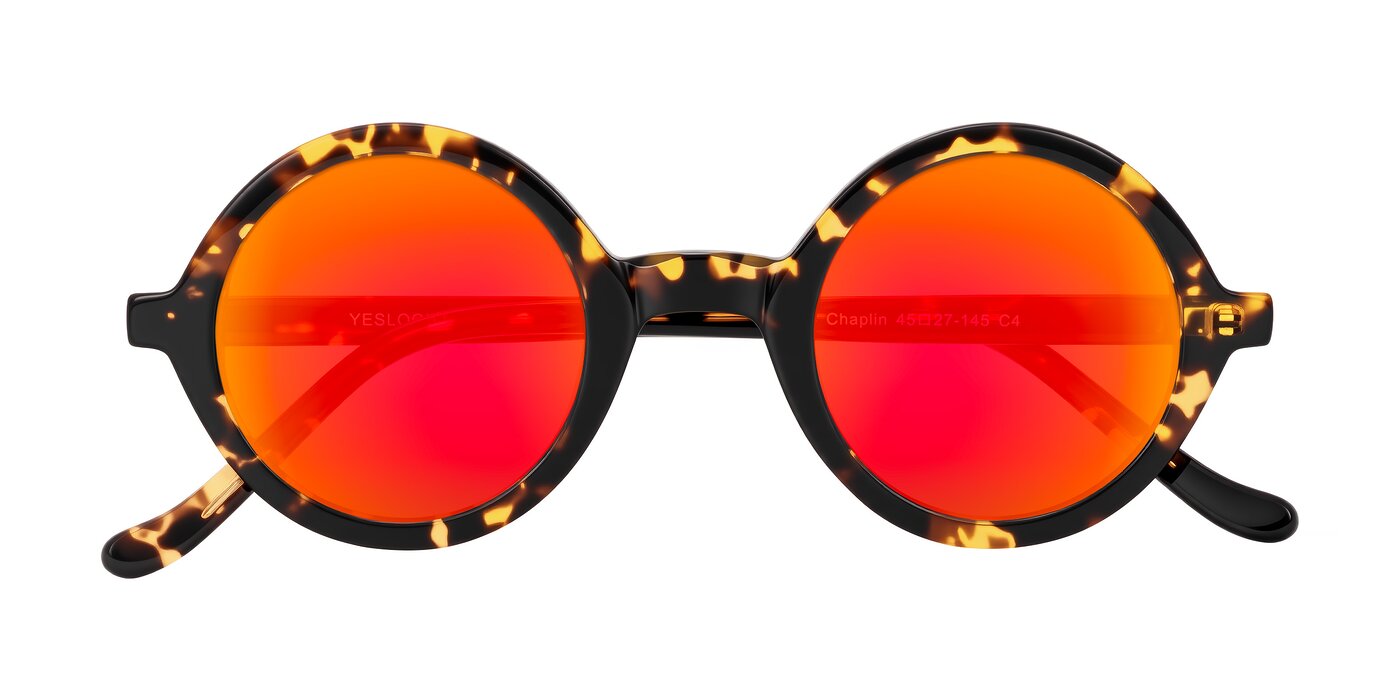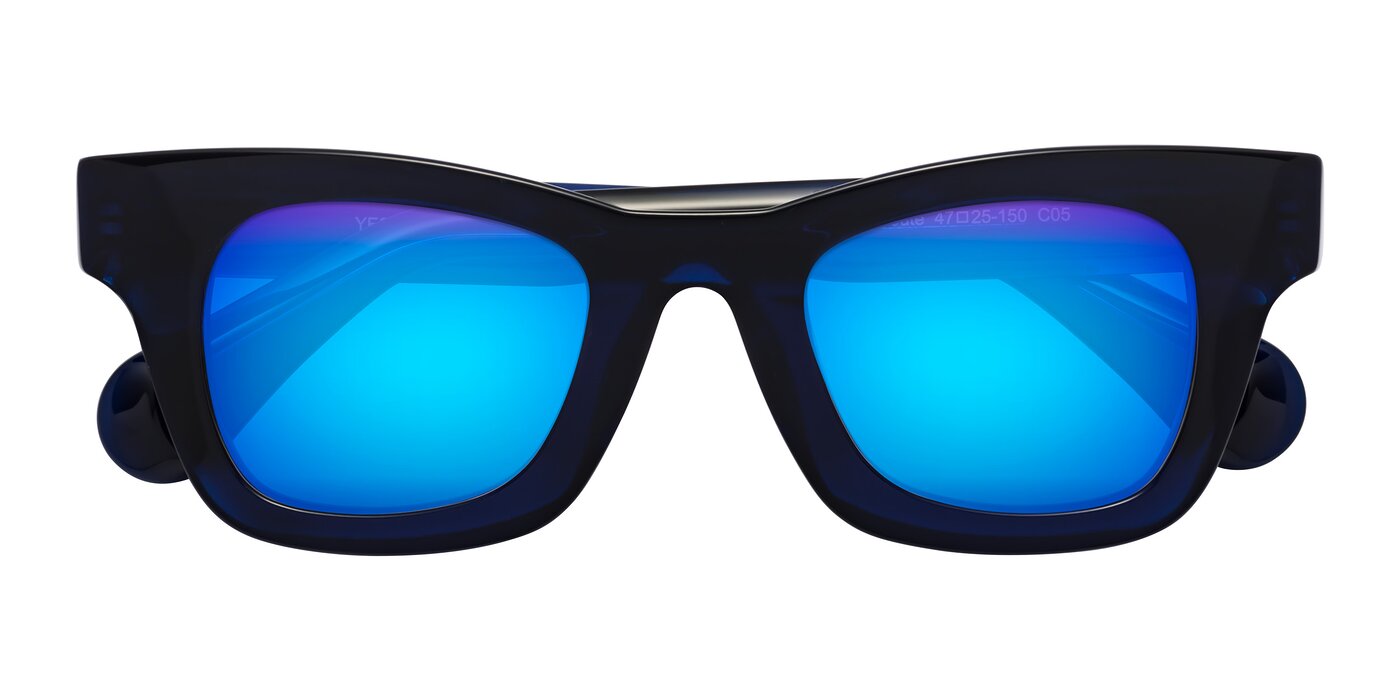
Polarized vs Non-Polarized Sunglasses
When it comes to choosing sunglasses, the number of options can seem overwhelming. As you browse for your next pair of shades, “polarized” is a word that will come up often.
- What does it mean when sunglass lenses are “polarized”?
- How do polarized sunglasses compare to non-polarized alternatives?
- Most importantly, which type is best for you?
Read on to find out!
What are polarized sunglasses?
Polarized sunglasses have a special coating that reduces glare and provides clearer vision in intensely sunny situations. This makes them perfect for bright days, daily commutes, and more.
How do polarized sunglasses work?
Natural light comes from the sun in vertical wavelengths. When this light reflects off of a surface, it bounces horizontally. This is called a “polarized wavelength”. It’s also how polarized lenses get their name.
Light that reflects off of water, glass, snow, cars, and other surfaces can be particularly harmful to your eyes. Fortunately, polarized sunglasses reduce the intensity of these reflections, protecting your eyes and allowing you to see clearly.
When should I wear polarized sunglasses?
Polarized sunglasses are the ideal choice for those who enjoy spending time outdoors. Don’t like to go outside? Then you may appreciate polarized sunglasses even more.
Polarized sunglasses are best for outdoor activities including:
They’re also incredible for a day (or week) at the beach. Between the sun and reflections off the sea and sand, a summer day at the coast can be super harsh on your eyes. That’s why we always recommend polarized lenses for those wanting the best beach sunglasses.
Not only do they have strong anti-glare protection, but they also improve visual clarity and help cut back on eye strain. Of course, let’s not forget that polarized sunglasses also protect your eyes from UV rays.
Are polarized sunglasses better than non-polarized alternatives?
Sometimes, but it depends on the situation. Polarized sunglasses are awesome, but they’re not the be-all, end-all solution to your sunglasses needs. While excellent in many situations, there are some compromises that come with the tech.
For example, the polarized coating makes it difficult to see phone or computer screens. As a result, polarized sunglasses aren’t exactly great for the workplace or any role that requires you to regularly look at a display.
Additionally, polarized lenses tend to be easily scratched. That’s why paring them with the right lens coating, such as an anti-scratch layer, is a must.
Having trouble with scratched lenses? See our guide to getting scratches out of glasses.
When else should I wear non-polarized lenses?
Beyond computer work, a few other outdoor activities won’t benefit from the use of polarized sunglasses. This is because polarized sunglasses affect depth perception. As a result, activities that require you to judge distances will be a bit more difficult when wearing polarized shades.
You may want to go with non-polarized lenses for activities like:
- Mountain Biking
- Golf
- Other Ball Sports
What are some of the most popular polarized sunglasses styles?
What types of sunglasses are non-polarized?
Non-polarized lens types include:
- Tinted Sunglasses
- Gradient Sunglasses
- Mirrored Sunglasses
Each of these lens types come with their own benefits and drawbacks.
Tinted vs Polarized
Tinted sunglasses come in three shades, giving you lots of variety and allowing you to choose a tint that fits your needs. For instance, if your eyes are sensitive to light, a pair of lightly tinted sunglasses can be worn indoors. That said, you may want a darker tint when you go outside.
Shop All Tinted SunglassesGradient and mirrored lenses, much like polarized sunglasses, are typically more situational. So, they tend to draw a more interesting comparison.
Gradient vs Polarized
Gradient lenses are darkly tinted at the top, with the tint gradually lightening at the bottom of the lenses. This makes their appearance distinct from polarized lenses.
While polarized lenses are helpful at reducing glare from horizontal light, gradient sunglasses are perfect when the sun is directly overhead.
They come in a wider variety of colors. Plus, other people can still see your eyes while wearing them. Thanks to the gradient tint, they can be worn indoors and outdoors.
Gradient sunglasses are best for the following activities:
- Reading
- Playing Sports
- Looking Fashionable
Mirrored vs Polarized
Mirrored sunglasses have a signature, shiny look that is unmistakable. Many people like the fact that other people can’t see your eyes behind the mirrored effect.
Like polarized sunglasses, they are great at reducing reflections. They also improve color perception, making natural colors look brighter.
Mirrored lenses come in a bright variety of colors such as blue, gold, green, and red. Polarized lenses, on the other hand, are limited to neutral gray, brown, and green.
Mirrored sunglasses are best for the following activities:
- Skiing
- Snowboarding
- Cycling
- Most Outdoor Sports
Get both polarized and non-polarized eyewear Yesglasses!
Ultimately, even the most stylish shades serve a purpose, and you want the right one for the job. This is why it’s best to have more than one pair. Keep a pair of polarized sunglasses at the ready for when the situation calls for them, relying on a non-polarized set of shades for everything else.
If you only have the budget for one pair of sunglasses, consider your lifestyle and the activities you enjoy. This should make choosing between polarized and non-polarized lenses easier.
Check out our selection of sunglasses to find the perfect pair for you!
Shop All SunglassesDid you know you can get polarized sunglasses fitted with your prescription? See why prescription sunglasses are a must.
